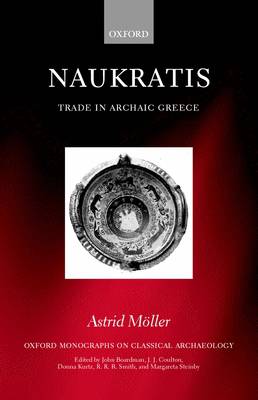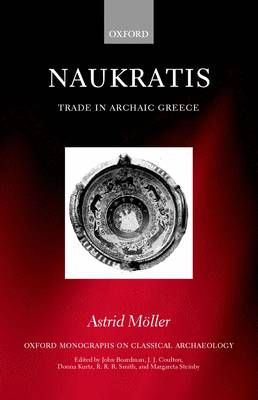
- Retrait gratuit dans votre magasin Club
- 7.000.000 titres dans notre catalogue
- Payer en toute sécurité
- Toujours un magasin près de chez vous
- Retrait gratuit dans votre magasin Club
- 7.000.0000 titres dans notre catalogue
- Payer en toute sécurité
- Toujours un magasin près de chez vous
444,95 €
+ 889 points
Description
This book comprises a significant contribution to our understanding of Graeco-Egyptian relations during the 7th and 6th centuries BC and also demonstrates that Polanyian economic theory can play an invaluable role in the ongoing debate about the concepts best employed to analyse the ancient Greek economy.
Spécifications
Parties prenantes
- Auteur(s) :
- Editeur:
Contenu
- Nombre de pages :
- 321
- Collection :
Caractéristiques
- EAN:
- 9780198152842
- Date de parution :
- 21-12-00
- Format:
- Livre relié
- Dimensions :
- 163 mm x 241 mm
- Poids :
- 668 g

Les avis
Nous publions uniquement les avis qui respectent les conditions requises. Consultez nos conditions pour les avis.






